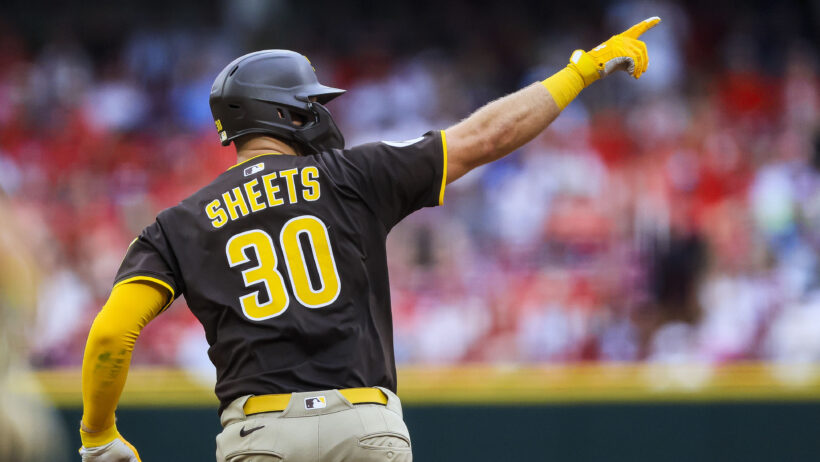The Truth About Futures Bets: Why to Avoid Them

If you’ve been following the sports betting industry for a while, you’ve likely heard the tale about the Vegas Golden Knights clinching the 2018 Stanley Cup Finals in their inaugural season. This subsequently exposed many sportsbooks to the most significant liability in the history of sports betting.
Why, precisely, did sportsbooks incur so much risk in the 2018 NHL playoffs? The answer is simple: futures betting. The unexpected success in the Golden Knights’ first season meant that the few people who wagered on them at +10000 odds (or higher, such as William Hill listing Vegas at +25000) stood to gain a massive profit. Vegas ultimately fell short in the finals, but sportsbooks were massively exposed.
However, don’t let this fanfare fool you. It’s very rare that futures bets benefit anyone, except bookmakers.
To learn more about how sportsbooks use futures bets to dupe squares and secure a profit, read on!
What Is a Futures Bet?
We’ve written an entire guide on the subject of futures betting. In essence, futures bets allow you to bet on events far in advance. These can include league championships, individual team’s season win totals, or the recipients of major trophies.
Futures bets are most common just before the season starts, or right at the start of it. This is a great way for bookmakers to get higher betting volume in the offseason – especially for the big four North American professional leagues (NBA, NFL, MLB, and NHL).
The odds attached to futures bets ebb and flow throughout the season right up through the playoffs. Bookmakers respond to individual teams’ and players’ fortunes, and try to entice bettors to wager on teams that are receiving low betting volume.
Are Futures Bets an Accurate Representation of Reality?
A novice bettor, also known as a ‘square’, might think that futures bets reflect an accurate representation of what bookmakers (and the media) believe teams and players will fare over a season. They might be inclined to believe that, by reading the list of available betting options and the odds attached to them, they’re viewing closely scrutinized rankings of who has the best chance to win a championship or individual award.
However, this isn’t the case. Odds attached to futures bets are merely a way for sportsbooks to spread out the money being wagered on each team. This way, when a team or player wins a championship or a trophy, sportsbooks are able to pocket a hefty profit from their season-long bookmaking efforts.
How do sportsbooks know they’ll make a profit on futures bets, most of the time? The answer is simple. The juice, or the ‘vig’, on futures bets is massive, and you’ll have to surrender a much higher percentage to your sportsbooks on futures bets than on any other available.
The Juice on Futures Bets, or Why Most Sharps Avoid Futures
If you read our article on how sportsbooks generate odds, you’ll know that a bookmaker’s sole aim is to attract equal action on all sides of a wager, and then pocket a profit on the juice (also known as ‘the vig’).
Futures odds can change quickly. They typically fluctuate at least once a week due to factors like teams going on hot streaks and sportsbooks balancing lines in response to incoming bets. Bookmakers seize these opportunities (afforded to them by the notorious volatility of futures odds) to charge enormous juice on their futures lines. It’s generally accepted that futures odds have massive variation baked into them, and sportsbooks use this to their advantage.
Additionally, sportsbooks charge colossal juice on futures to manage their risk. For example, in the NHL, 31 teams compete for the Stanley Cup every year. In the middle of July, it’s nearly impossible for a bookmaker to successfully balance the action they’re receiving on futures bets. There’s just too much uncertainty early in the season. As such, sportsbooks respond by charging colossal juice.
As we mentioned earlier, a Cinderella run by an underdog at any point in the season can be enough to give any oddsmaker a panic attack. If the Vegas Golden Knights had won the Stanley Cup, it would have been an unmitigated disaster for sportsbooks. These sportsbooks were massively exposed because they would have had to pay out the bettors who wagered on the Knights at the beginning of the season at a minimum of 100-1 odds, depending on the sportsbook.
How Much Juice Does a Sportsbook Charge?
If you’re confused about how sportsbooks charge juice on futures bets, it’s simple: All you have to do is add up the odds being offered on each team or player and convert them to implied probability. You’ll see that the number is well over the standard 105%-110% overround typically seen on conventional betting lines.
For example, we took a look at Stanley Cup Odds in the summer before the 2018 NHL season started, and found that the total implied probability at one sportsbook was 130.14%.
Two teams were listed at +750, meaning they had an implied probability of 11.76% to win the Stanley Cup. The two teams were definite favorites, but at +750, sportsbooks make bettors pay a hefty premium if they want to lay down cash on the early season contenders. It’s likely that the sportsbook was getting a ton of action on these two teams, so they shortened the odds significantly to try and balance the action.
It’s generally accepted that brick and mortar sportsbooks charge about 40-70% on futures bets, while online sportsbooks charge around 20-40%. There is no hard and fast rule, and the amount of juice sportsbooks charge will fluctuate as the season transpires.
We found that with some astute and extensive line shopping, it’s possible to get around 7% juice total. Keep in mind, however, that to get this 7% juice, you’d have to bet on every available option. Not only is this time consuming, but it’s unlikely to be profitable.
There’s One Way to Use Futures Bets to Your Advantage
If you really like the idea of futures bets and trust your ability to predict winners, futures bets still have some utility. The futures bets marketplace doesn’t even come close to accurately representing a team or player’s chances of capturing a title. They do, however, provide a tremendous opportunity for bettors to hedge their bets as a means of managing and mitigating risk.
If you pick a couple of underdogs at the beginning of the season, futures bets are a great way to potentially secure yourself a hefty profit. If you’re going to delve into the futures markets, we’d advise picking a team that the media (and your sportsbook) regards as a longshot, as you’re unlikely to find very much value betting on any favorites in the futures market.
By and large, we recommend abstaining from the futures betting market. As a general rule, the juice is usually too high to make them worth your while.
If you want to learn more about professional bettor habits and what they tend to avoid, check out our guide to the sharpest strategies in the industry.

Evergreen Writer/Editor; Sportsbook Expert
With nearly two decades of experience in sports media, Paul Costanzo turned his professional attention to sports betting and online gambling in January of 2022. He's covered every angle of the industry since then, managing and creating content for PlayMichigan and The Sporting News, and now SBD.



